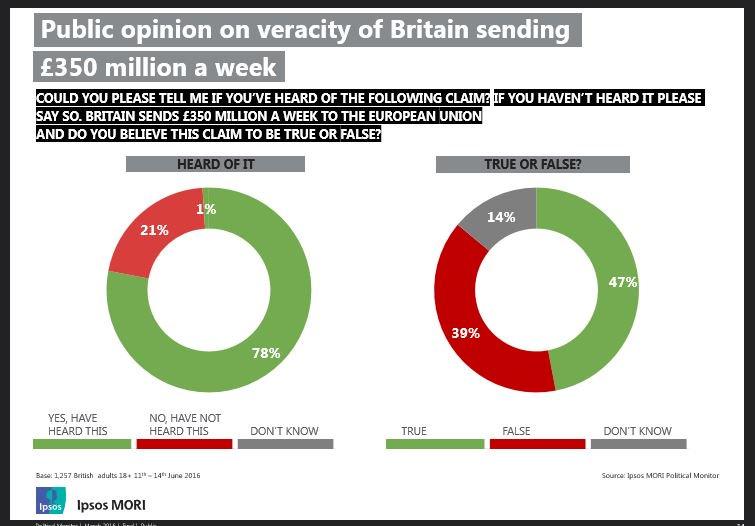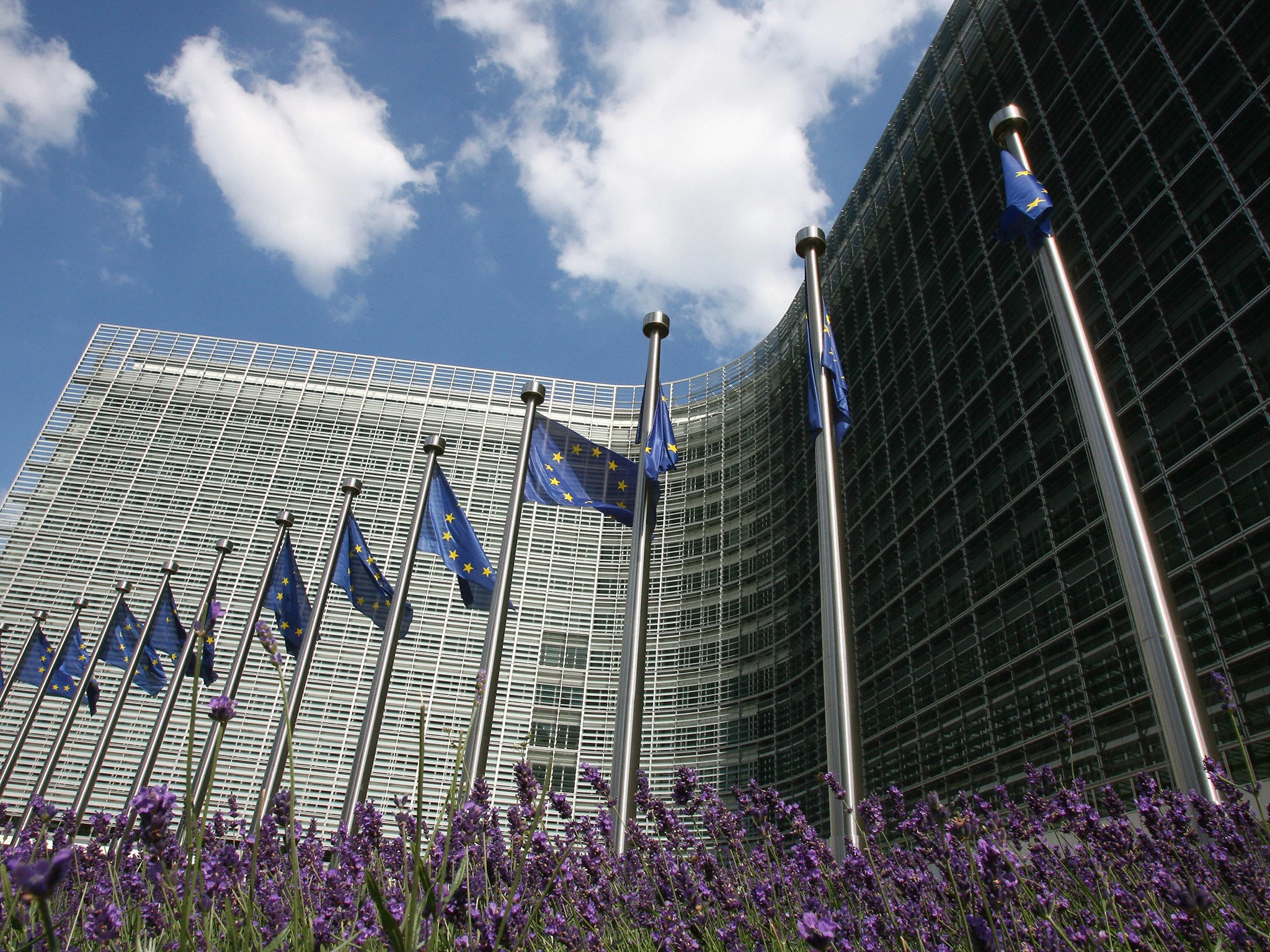Your support helps us to tell the story
From reproductive rights to climate change to Big Tech, The Independent is on the ground when the story is developing. Whether it's investigating the financials of Elon Musk's pro-Trump PAC or producing our latest documentary, 'The A Word', which shines a light on the American women fighting for reproductive rights, we know how important it is to parse out the facts from the messaging.
At such a critical moment in US history, we need reporters on the ground. Your donation allows us to keep sending journalists to speak to both sides of the story.
The Independent is trusted by Americans across the entire political spectrum. And unlike many other quality news outlets, we choose not to lock Americans out of our reporting and analysis with paywalls. We believe quality journalism should be available to everyone, paid for by those who can afford it.
Your support makes all the difference.Nearly half of the British public believe Vote Leave’s claim that the UK pays £350 million a week to the European Union despite the figure being debunked, a poll shows.
Ipsos MORI found that 47 per cent of the public believe that the claim, which has been repeatedly criticised by the UK Statistics Authority, is true.
Just 39 per cent realise the figure, which has formed the centerpiece of the Leave campaign, is false, while 14 per cent do not know.
Sir Andrew Dilnot, chair of the UK Statistics Authority, said last month he was disappointed that the Brexit campaign continued to make the claim as it was “misleading and undermines trust in official statistics”.
The figure in fact neither includes Britain’s rebate, nor money paid back to the UK through the Commons Agricultural Policy, regional development funding, scientific grants, or cultural grants.
It also does not take into account the benefits to the public finances of increased economic activity that comes from being a part of the European Union.
In fact, the independent and respected Institute for Fiscal Studies has said the net effect of leaving the EU would be for a £36 billion black hole in the public finances to open up during the spending period as a result of lower growth and tax revenue.

Despite the criticism, the Leave campaign has emblazoned the figure on the side of a bus and continues to use it in campaign literature and in interviews.
Brexiteers have promised to spend the supposed financial haul on the NHS and public services. In a BBC Question Time programme on Wednesday night Michael Gove said he believed around £100 million a week could go to the health service.
The Leave campaign has simultaneously pledged to not cut any of the agricultural, scientific, or cultural grants the EU gives to the UK.
Meanwhile George Osborne has said that his first budget after Brexit would have to involve sharp cuts to the NHS and schools, and a 2 per cent increase in the basic rate of income tax in order to paper over the black hole.
But the public do not believe Treasury forecasts that households would be £4,300 permanently worse off after Brexit, the same poll shows.
Pollsters found that 70 per cent believe Mr Osborne's flagship claim is a falsehood, with just 17 per cent of people accepting it as fact.
A series of polls in the last week has shown Leave opening up a consistent lead over Remain for the first time.
Sir Andrew said last month: “The UK Statistics Authority is disappointed to note that there continue to be suggestions that the UK contributes £350m to the EU each week, and that this full amount could be spent elsewhere.
“As we have made clear, the UK’s contribution to the EU is paid after the application of the rebate.
“We have also pointed out that there are payments received by the UK public and private sectors that are relevant here. The continued use of a gross figure in contexts that imply it is a net figure is misleading and undermines trust in official statistics.”

Join our commenting forum
Join thought-provoking conversations, follow other Independent readers and see their replies
Comments